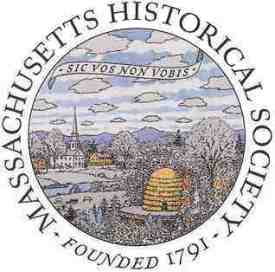Forum Network
Free online lectures: Explore a world of ideas

Since 1791 the mission of the Massachusetts Historical Society has been to collect, preserve, and communicate historical information to the widest possible audience. The holdings of the Society comprise over 3,500 separate collections of personal, family, and institutional papers, including more than 2,000 diaries; rare books; photographs; paintings; engravings; maps; and artifacts. Since 1792 the Society has been issuing publications, including scholarly journals, historical monographs, collections of essays, editions of documents, and reference works. The Society also runs seminar series, conferences, lectures, research and educational fellowship programs, and a growing outreach program to K-12 teachers.